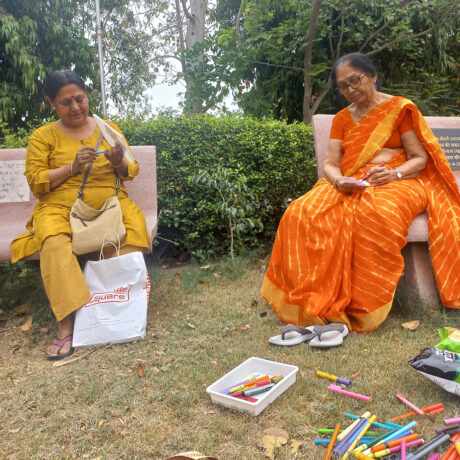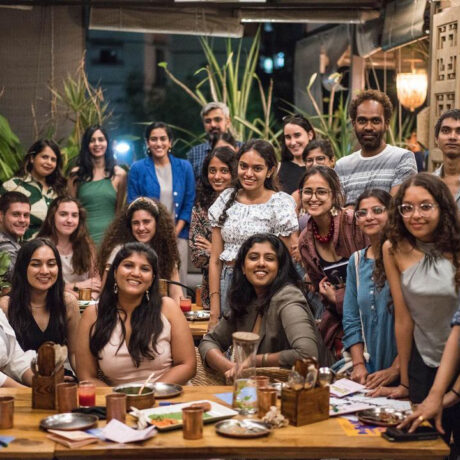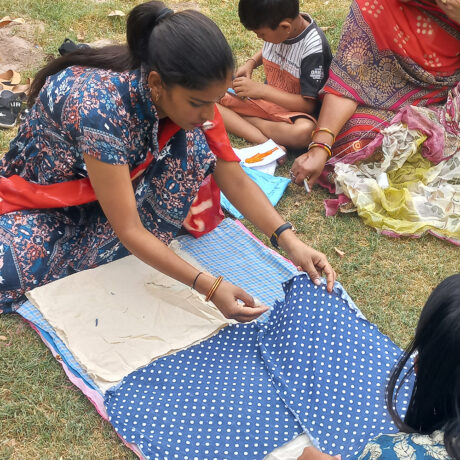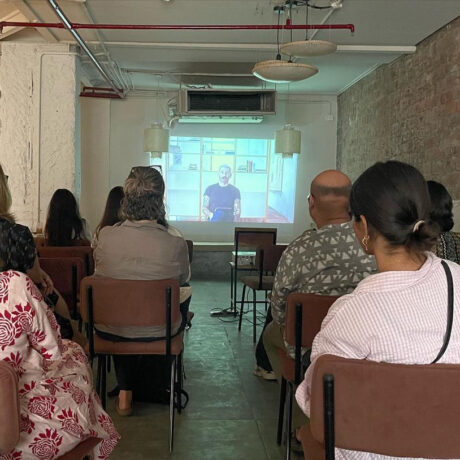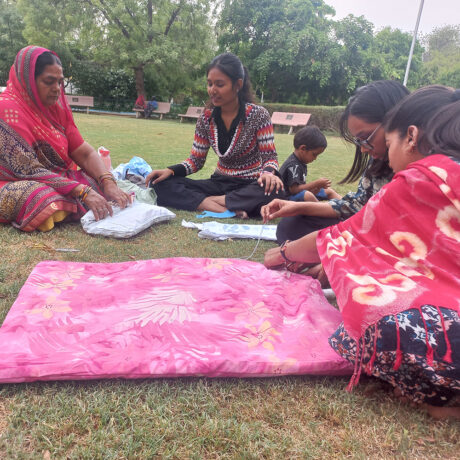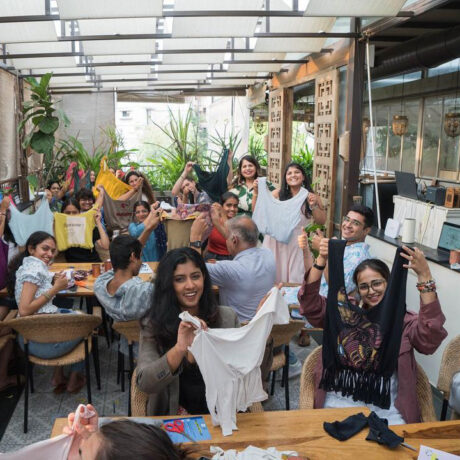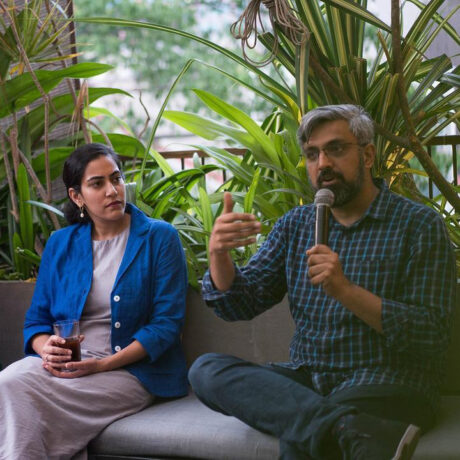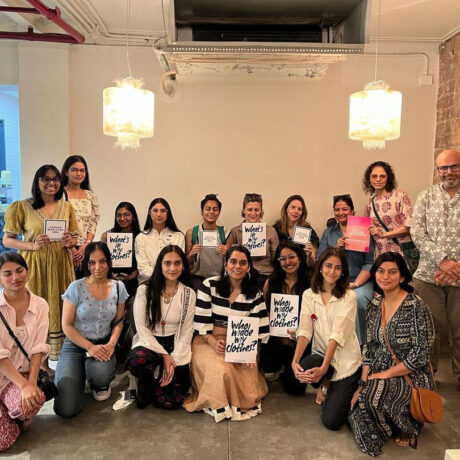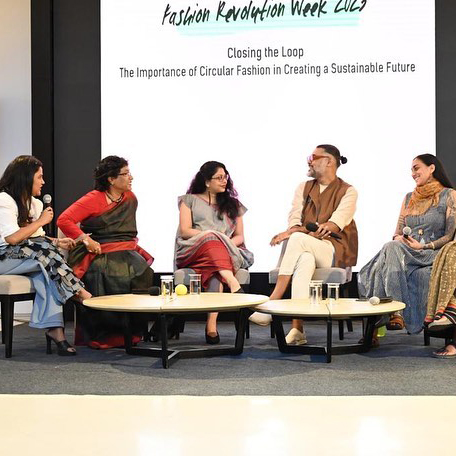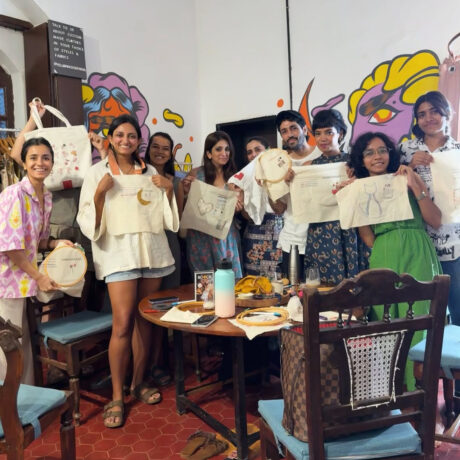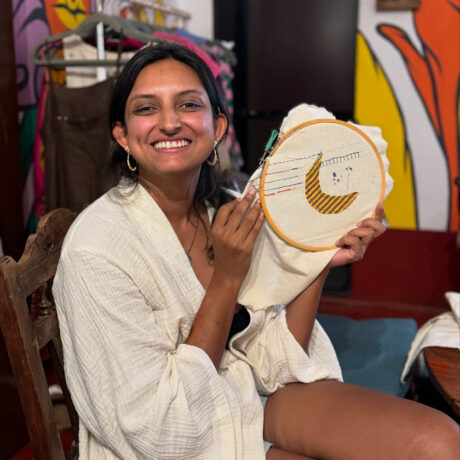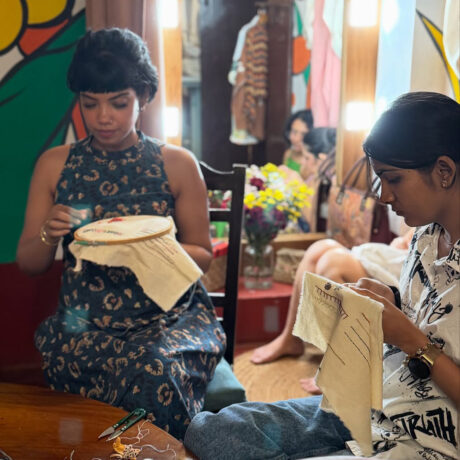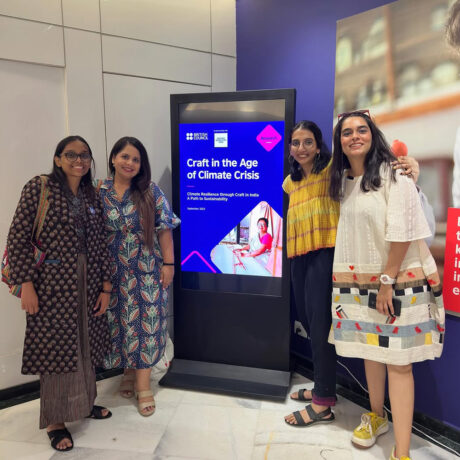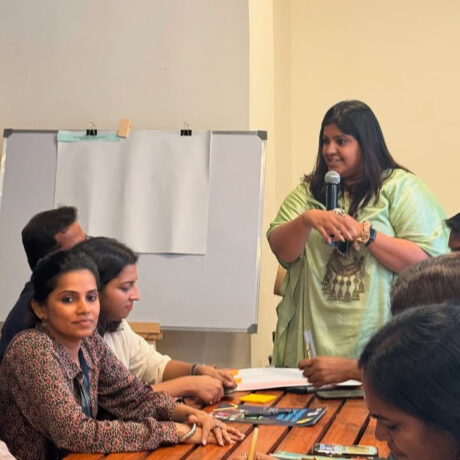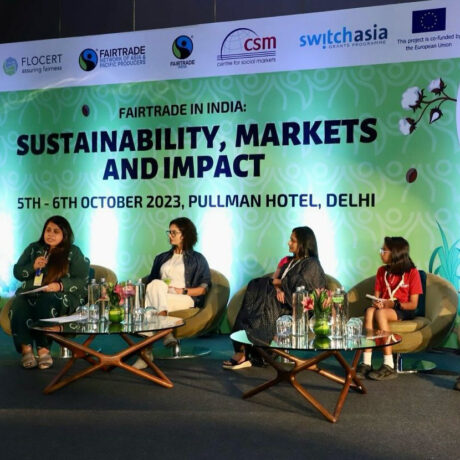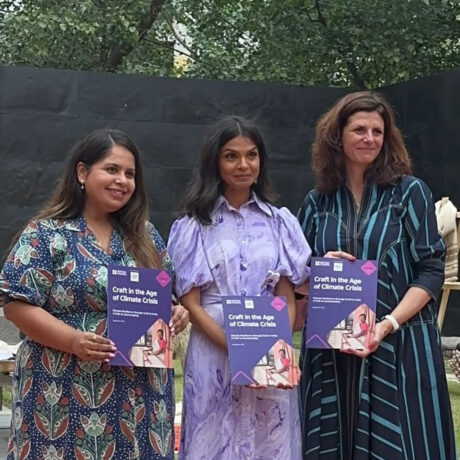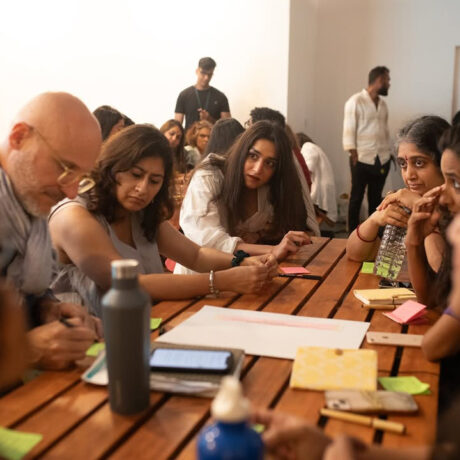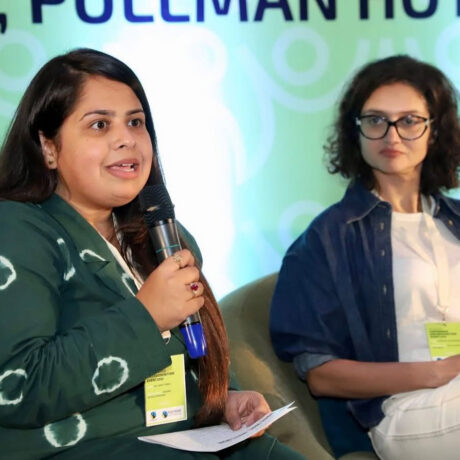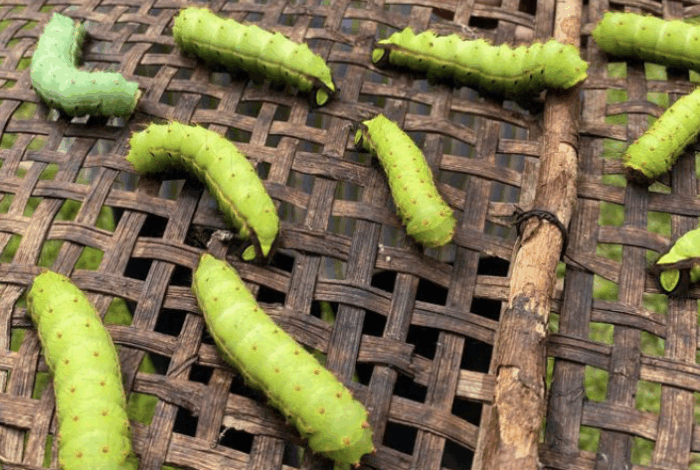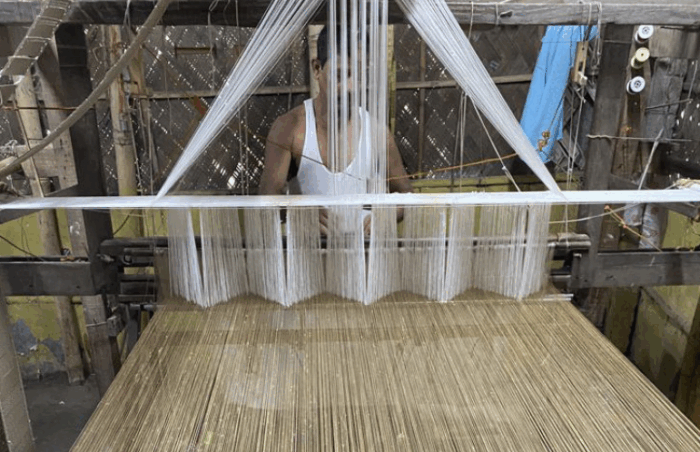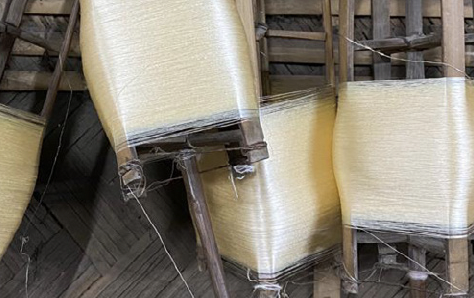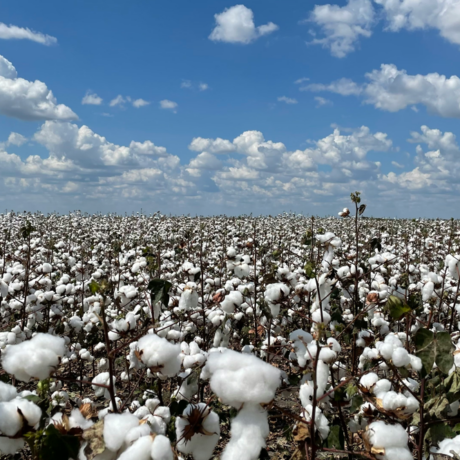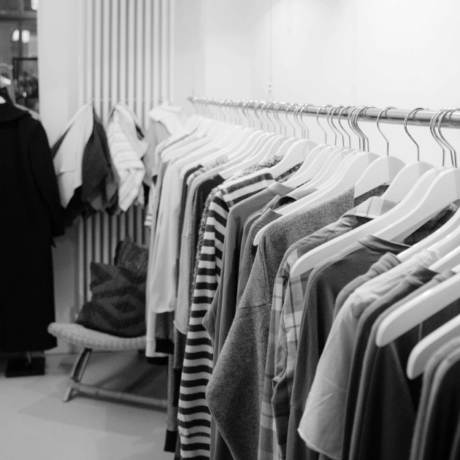
“At the heart of craft systems and indigenous communities lies a symbiotic relationship with nature, a profound understanding of circular practices, and environmental stewardship.
Our journey across India and meaningful conversations with stakeholders highlight the undeniable significance of our artisanal heritage in addressing the environmental crisis faced by the fashion industry today.”
Shruti Singh,
Country Head, Fashion Revolution India
Craft in the Age of Climate Crisis
British Council and Fashion Revolution India present a stakeholder insights report on the interplay between craft and climate crisis in the context of fashion. This report has been a crucial journey in understanding the perspectives of stakeholders working in the ecosystem – their experiences, insights, challenges, solutions, and recommendations to build climate resilience.
Read our report
Download the ReportMUGA SILK
Rising temperatures adversely affect the fate of the Muga silk produced in Assam, which depends on the muga silkworm, a species highly sensitive to temperature and humidity changes, leading to unpredictable silk production
(Images: Delphine Pawlik)
HANDLOOM
The handloom weavers of Varanasi and Madhya Pradesh, are impacted by the erratic rainfall patterns on cotton crops, leading to a scarcity of raw materials and spiralling costs.
CHANNAPATNA TOYS
In Channapatna, Karnataka, renowned for its 200-year lacquering tradition, artisans face challenges due to scarce local Aale mara’ (Wrightia tinctoria) trees, crucial for the toys wood base. This scarcity is tied to rising temperatures and shifting rainfall patterns.
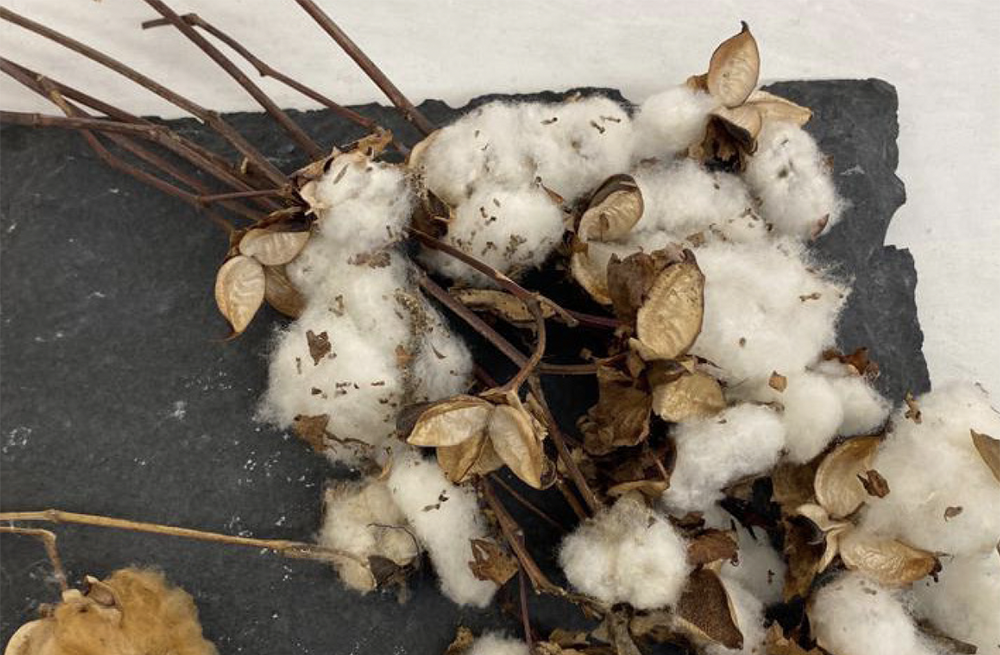

“In our practice, we have found that engaging with a community of artisans is not just an economic intervention but also social…for women, crafts is not just about earning a wage but also an accessible way to explore their identities outside of role enforced on them by patriarchy.
This approach helps us record their indigenous knowledge, which has micro systems that can collectively address the climate crisis.”
Bhaavya Goenka,
Fashion Revolution Regional Coordinator – Jaipur
Founder, Iro Iro
About
Namaste from Fashion Revolution India!
We are a dedicated team aspiring for a sustainable fashion industry. We challenge, confront, and combat brands and organizations that value profit over people while promoting and educating all forms of ethical and conscious fashion.
India is one of the world’s largest manufacturers of textile and apparel providing employment to around 45 million people with a majority comprised of a female workforce in the garment industry. We are also one of the largest consumer markets in the world. As such, our voices are bound to have a huge influence on the fashion industry in terms of the ethical treatment of supply chain workers and a cleaner and safer manufacturing process. After all, we envision a fashion industry where workers and farmers earn the livelihoods they deserve and a supply chain process that restores and conserves the natural environment.
At the forefront of our work, we always remember the words of Mahatma Gandhi, the father of our nation – “There is no beauty in the finest cloth if it makes hunger and unhappiness”.
On this note, we urge you to ask brands #WhoMadeMyClothes and #Whatsinmyclothes to remind them of their primary responsibility towards workers and laborers.
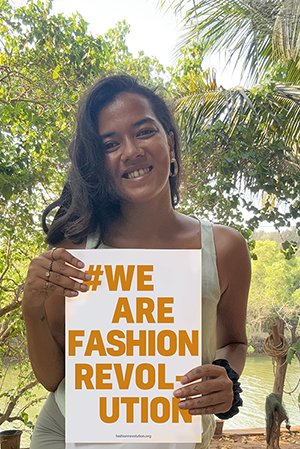
Contact us
We welcome all sustainable fashion enthusiasts who wish to take part in our campaign and contribute to our movement. If you’d like to support or reach out to us, you can do so using any of the handles below or download resources from our website to take part in our campaigns.
Email: india@fashionrevolution.org or fill out this contact form below.
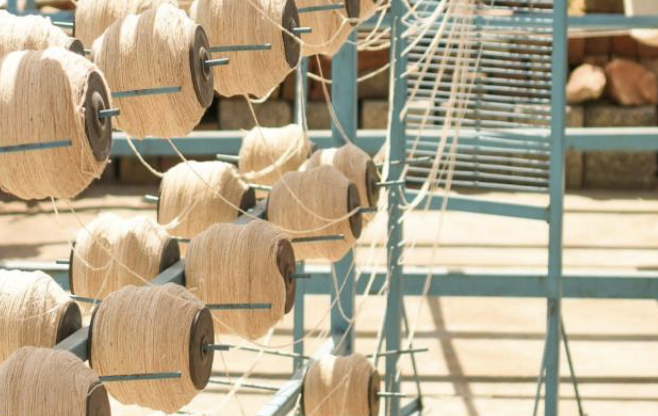
Reimagining the Craft Economy in India Post Covid-19
In response to the Covid-19 pandemic, the British Council in partnership with Fashion Revolution India, launched a report highlighting key recommendations focused on reimaging the craft economy post covid-19 gathering responses from artisans, designers, policy makers and consumers.
Based on data and key insights collected from a survey, we release the report titled Reimaging the craft economy post Covid-19 which include key findings, case studies of resilience and innovations in action across the craft sector.
We extend our gratitude to all those who contributed to the survey and to the report. Your insight has been extremely valuable in advocating and influencing the support required for the creative sector. The report responds to the UN Year of Creative Economy for Sustainable Development by providing opportunities, supporting inclusive growth, and promoting innovation.
(Image: May Ee Fong)
Read our report
Download the ReportGender Equity and its Impact on Sustainability in Cotton Farming in India
Fashion Revolution India policy report on Gender Equity and it’s Impact on Sustainability in Cotton Farming in India.
This study and policy dialogue with stakeholders explored the roles, challenges and opportunities for women farmers to understand whether gender equality and equity can be a key component in making cotton farming process more sustainable economically, socially and environmentally. The gendered analysis of cotton farmers has shed light on several important issues and highlight why it is important to actively engage with women farmers to solve the sustainability crisis in cotton farming.
In partnership with British Council.
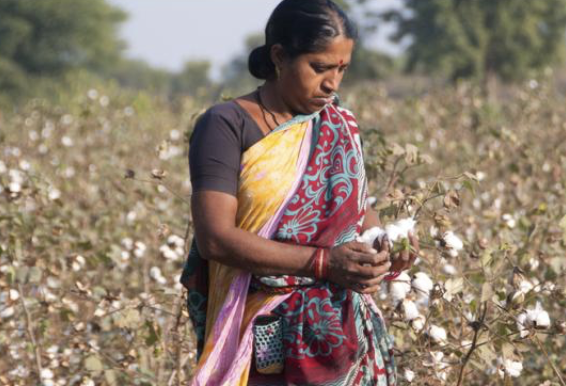
Read our report
DOWNLOAD THE REPORT